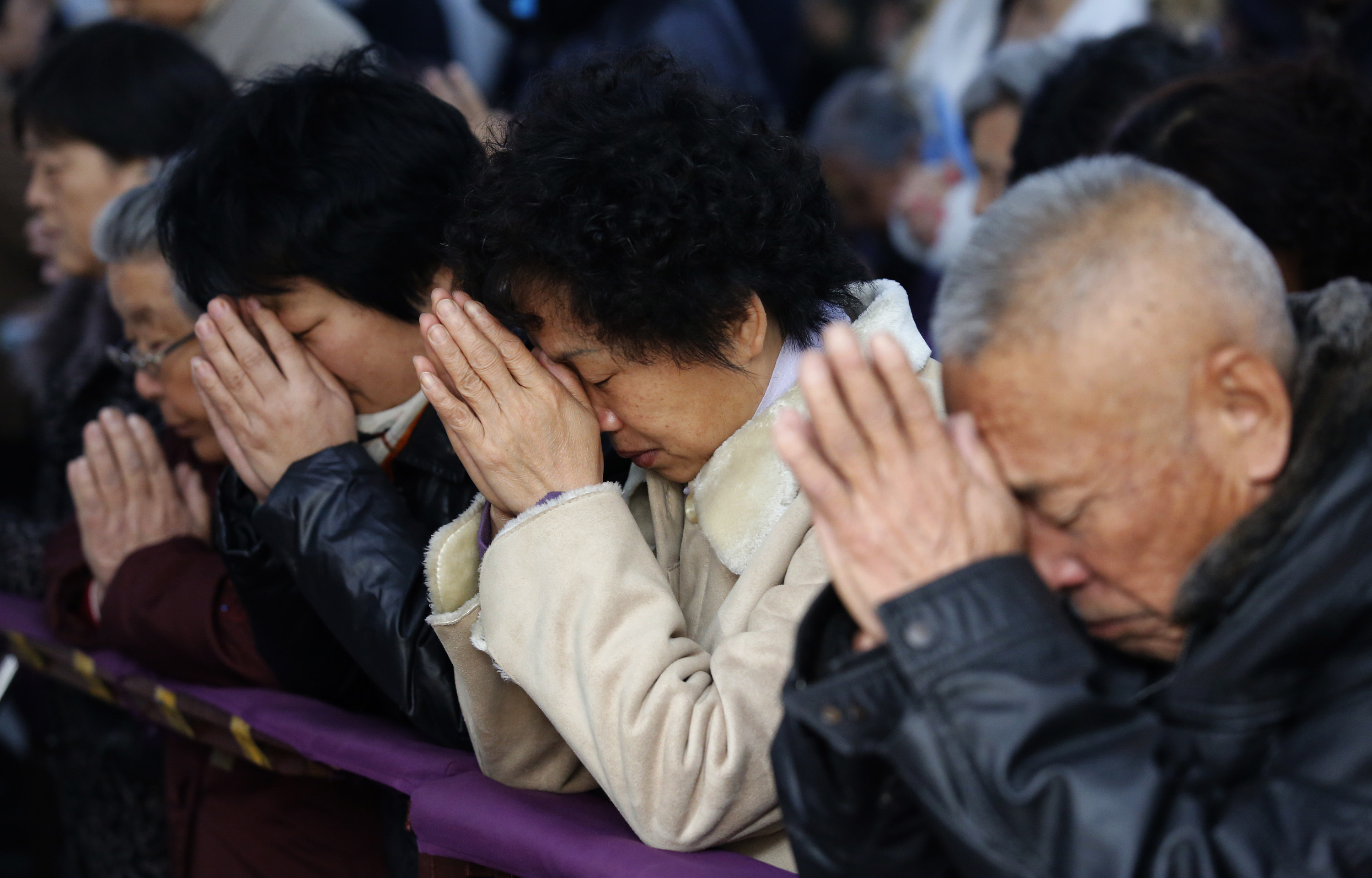Can Christianity save China?
A religious revolution is brewing, and it's one of the most important events of the 21st century


The growth of Christianity in China has been astonishing. At this point, it's no longer a question of if China will become a Christian nation, but when. The ramifications of this religious shift are massive, and will shake China's culture and economy to their cores.
Since 1979, Protestant Christianity has been growing in China at a compound annual growth rate of more than 10 percent. There were 3 million Christians in China in 1980, compared to 58 million in 2010, according to Fenggyang Yang, director of the Center of Religion and Chinese Society at Purdue University. By 2025, that number could swell to 250 to 300 million.
Surprised? That makes sense. The Chinese Communist Party has done all it can to downplay this phenomenon and keep a tight media lid on it. Meanwhile, Western media outlets are so taken with the idea that religion is an irrelevant (and declining) facet of modern life that they don't pay attention to its growth in most places outside calcified Western Europe.
The Week
Escape your echo chamber. Get the facts behind the news, plus analysis from multiple perspectives.

Sign up for The Week's Free Newsletters
From our morning news briefing to a weekly Good News Newsletter, get the best of The Week delivered directly to your inbox.
From our morning news briefing to a weekly Good News Newsletter, get the best of The Week delivered directly to your inbox.
But this shift is happening, and it is astonishing, especially considering that China is officially an atheist country. From Chairman Mao's accession to power until his death, China officially banned all religion, the only country in history besides Albania to do so. Then, in 1979, in keeping with its liberalization program, China cautiously allowed a few places of worship to open. But the government's policy is still that religious expression must obey the party. Religion that is not officially sanctioned is still oppressed.
While it might seem surprising that Christianity could grow in the face of such repression, it is repression that prompted the growth of Christianity in the first place. In the third century, the church father Tertullian famously boasted that "the blood of martyrs is the seed of the church."
To better understand what's going on in China, let's look back at the Roman Empire. There, both government and society had values that were at odds with Christianity. The religion was so foreign, the reaction was an incoherent mix of savage oppression, benign neglect, and attempts at cooptation.
Still, Christians eventually became the dominant group in the Roman Empire by compounding with a respectable yearly growth rate. But there was more to it than that. Christians were often over-represented among the intelligentsia, which gave them a strong cultural cachet, even as their innovative welfare work made them attractive to the poor. (Bone fragments show Christians were healthier and lived longer than pagans, almost certainly thanks to the church's welfare system.) And of course, the church's heroic work was great PR. After a plague, while most people fled to the countryside, Christians rushed in to help the people, like they did in China in the wake of the 2008 Sichuan earthquake.
A free daily email with the biggest news stories of the day – and the best features from TheWeek.com
Under Xi Jinping, the Chinese government has stepped up its oppression of Christianity. As the Chinese writer and dissident Yu Jie writes in the magazine First Things:
An internal government document obtained by The New York Times in May 2014 shows that the church demolitions are part of a larger campaign to curb Christianity's influence on the public. According to the nine-page provincial policy statement, the Xi administration wants to put an end to "excessive" religious sites and "overly popular" religious activities, but it names one religion in particular, Christianity, and one symbol, the cross. [First Things]
If history is any guide, this will only increase the popularity of Christianity. As Yu writes: "One of the phrases I have heard most often among [Chinese Christians] is: 'The greater the persecution, the greater the revival.'" Indeed, during the Cultural Revolution of the 1960s and '70s, when oppression was at its fiercest, Christianity actually grew in China.
Interestingly, Protestant Christianity is growing much faster in China than Catholic Christianity, almost certainly because the Roman Catholic Church has practiced a doctrine of appeasement to the Chinese government. Given that Protestantism is a do-it-yourself religion, where anyone is empowered to decide doctrine based on their interpretation of the Bible, we could see the emergence of new and seemingly strange versions of Christianity, acculturated to China, and perhaps mixed in with Confucianism, Buddhism, and Taoism.
Today, China is pursuing a nationalistic foreign policy, combined with a domestic policy focused almost exclusively on economic growth and productivity. This comes at the expense of families, social welfare, and the environment. To say that these are not exactly Christian values is an understatement. It is not hard to understand why the Chinese leadership is not a fan of Christianity.
But Christianity could be China's only chance to survive. Because of its one-child policy, and sex-selective abortion and infanticide, China is a fast-aging country with a massive gender imbalance. If you add to that the tensions wrought by breakneck crony capitalism and consumerism and inequality and pollution, the country is a powder keg. Most Westerners see China as a strong rival, but China's actual leaders see the country as always teetering on the brink of collapse, which is why their grip on power is so white-knuckled. More deeply, decades of Communism have stripped China of so much of its cultural heritage and left its society and culture aimless.
Christianity's enormous cultural and spiritual heritage, its emphasis on the rule of law, and its traditional focus on fertility are just what China may need to manage the next few decades without collapsing into civil war, revolution, or something equally terrible.
Pascal-Emmanuel Gobry is a writer and fellow at the Ethics and Public Policy Center. His writing has appeared at Forbes, The Atlantic, First Things, Commentary Magazine, The Daily Beast, The Federalist, Quartz, and other places. He lives in Paris with his beloved wife and daughter.
-
 How Bulgaria’s government fell amid mass protests
How Bulgaria’s government fell amid mass protestsThe Explainer The country’s prime minister resigned as part of the fallout
-
 Femicide: Italy’s newest crime
Femicide: Italy’s newest crimeThe Explainer Landmark law to criminalise murder of a woman as an ‘act of hatred’ or ‘subjugation’ but critics say Italy is still deeply patriarchal
-
 Brazil’s Bolsonaro behind bars after appeals run out
Brazil’s Bolsonaro behind bars after appeals run outSpeed Read He will serve 27 years in prison
-
 Americans traveling abroad face renewed criticism in the Trump era
Americans traveling abroad face renewed criticism in the Trump eraThe Explainer Some of Trump’s behavior has Americans being questioned
-
 Nigeria confused by Trump invasion threat
Nigeria confused by Trump invasion threatSpeed Read Trump has claimed the country is persecuting Christians
-
 Sanae Takaichi: Japan’s Iron Lady set to be the country’s first woman prime minister
Sanae Takaichi: Japan’s Iron Lady set to be the country’s first woman prime ministerIn the Spotlight Takaichi is a member of Japan’s conservative, nationalist Liberal Democratic Party
-
 Russia is ‘helping China’ prepare for an invasion of Taiwan
Russia is ‘helping China’ prepare for an invasion of TaiwanIn the Spotlight Russia is reportedly allowing China access to military training
-
 Interpol arrests hundreds in Africa-wide sextortion crackdown
Interpol arrests hundreds in Africa-wide sextortion crackdownIN THE SPOTLIGHT A series of stings disrupts major cybercrime operations as law enforcement estimates millions in losses from schemes designed to prey on lonely users



